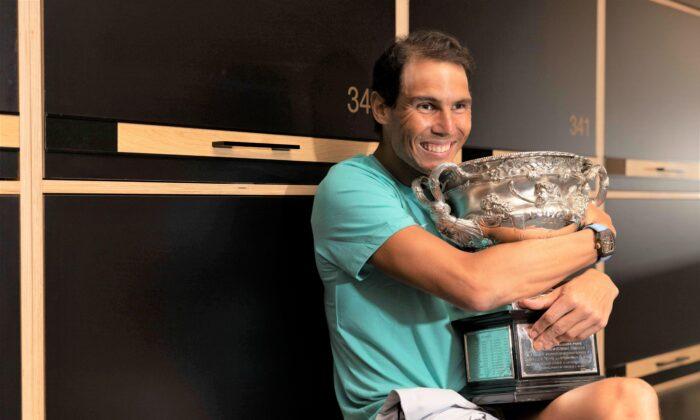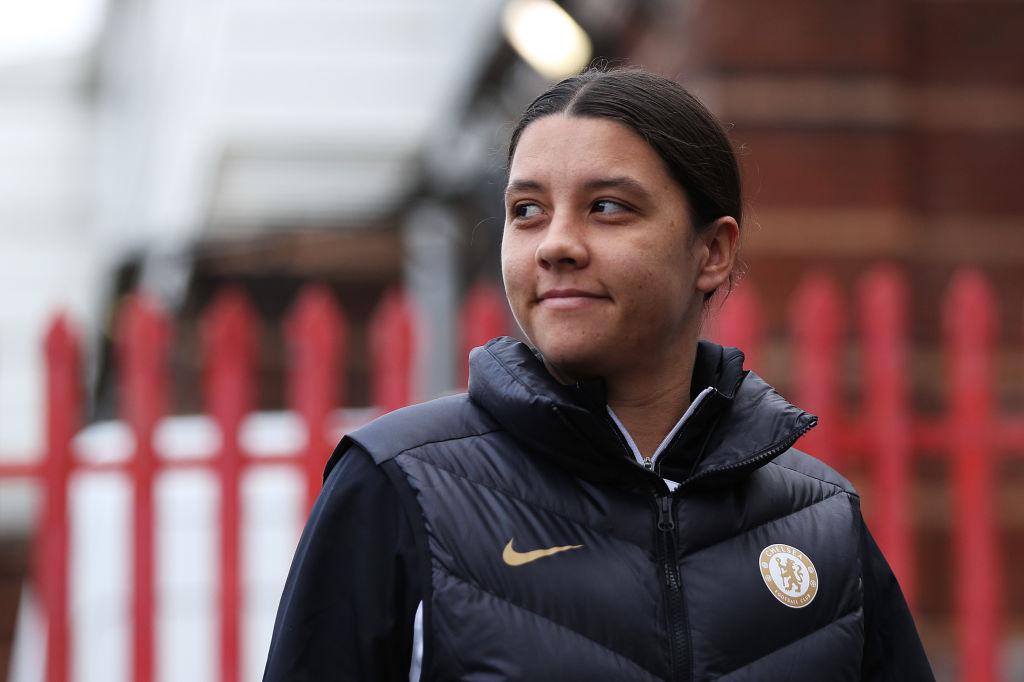But history will also remember the 2022 edition of the Australian Open for other, less salubrious reasons. These reasons manifested themselves well before the Open got underway.
It started with the arrival in Australia of Novak Djokovic in Melbourne, followed by two weeks of litigation, petty politics, and eventual deportation. Djokovic’s story captivated the international media and brought Tennis Australia in disrepute because it had communicated incorrect visa information about COVID-19 vaccination requirements to unvaccinated players.
Tennis Australia was also relentlessly criticised for ordering a spectator to remove a Peng Shuai T-shirt, which on the front asked the question “Where is Peng Shuai?”
A few days later, following intense media scrutiny, Tennis Australia capitulated and reversed its decision.
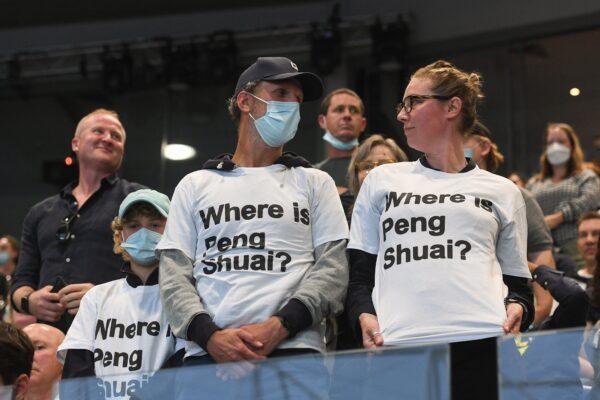
Some cynical journalists speculated that the Open was the beneficiary of substantial Chinese funding and that a desire not to offend China may have been the motive behind Tennis Australia’s initially inflexible demand to remove the T-shirt.
Nevertheless, the order to remove the T-shirt was disgraceful, which reflected badly on Tennis Australia’s organisation of the event and revealed a cavalier attitude to free speech, while all the time claiming to be concerned about Peng Shuai’s welfare.
Some tennis players were guilty of shameful antics on the court.
For example, Daniil Medvedev’s impromptu comment, following repeated booing, about the “low IQ” of some spectators did not ingratiate him with tennis enthusiasts. He was booed whenever he came on court, especially when serving.
Jim Courier, in an on-court interview, explained to him that the spectators did not boo him; they were merely imitating the sound that Christiano Ronaldo, the famous footballer, makes when scoring a goal. He jumps up in the air and rotates his body while shouting “Sii.”
It is, however, a bit of a mystery how this ritual could be transplanted from soccer in the Premier League to Melbourne Park. Considering the intermittent booing, Medvedev displayed remarkable skill in maintaining his focus on the match.
But Medvedev’s emotions, the number two seed (Djokovic was number one) boiled over in his semi-final against Stefanos Tsitsipas, the number four seed, when he verbally abused the referee, Jaimie Campistol, and called him a “small cat.”
There was a media frenzy to uncover the meaning of this phrase, which may well be meaningless. The reason for the blow-up was that Tsitsipas was being coached by his father from the player’s box. One hour after the outburst, the referee gave the player a coaching violation.
Jim Courier, in his commentary, surmised correctly that the referee’s action was the consequence of a sting operation, involving a Greek-speaking official who unobtrusively placed herself in the player’s tunnel right beneath the player’s box and alerted the referee about Tsitsipas’s father illegal coaching.
When the coaching violation was given, Tsitsipas promptly lost the next five games and the match. This episode is a reminder that cheating does not always pay.
One of the most distasteful aspects of the tournament was the fans’ obsequious treatment of Thanasi Kokkinakis and Nick Kyrgios, who played the doubles final against another Australian doubles team, Matthew Ebden and Max Purcell.
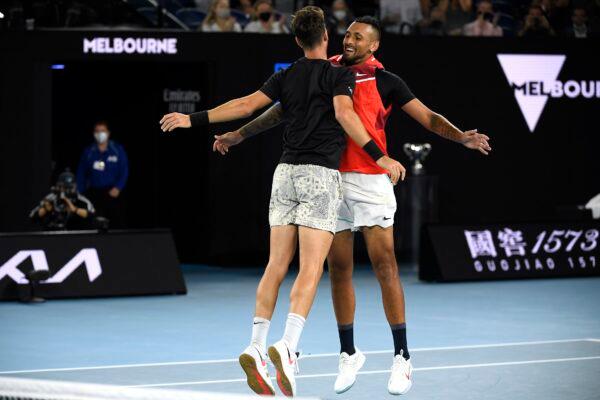
When Kyrgios plays, spectators expect, and usually get, a display of clownish and infantile behaviour, which often involves the smashing of his racquet and unpleasant diatribes directed at the referee or even the spectators, among other peccadilloes.
In their semi-final, the Kokkinakis/Kyrgios team was also given special treatment by Channel Nine. The channel televised their game and discontinued the telecast of the crucial quarter-final match of Rafael Nadal and Denis Shapovalov.
Viewers did not appreciate this because the Nadal/Shapovalov game had entered a thrilling, nail-biting, and crucial phase.
The other semi-final doubles game, involving the Ebden/Purcell team was hardly acknowledged.
There is no doubt that there is a Kyrgios cult, with people going wild whenever he appears on the court—it is an impish spectacle unbecoming a competitive sporting event.
In contrast, the adulation of Ashleigh Barty is understandable and deserved, considering that she is the top female tennis player in the world. Barty won the Women’s Final in two sets (the second in a tie break): it was the first win of an Australian female player in 44 years—Chris O’Neil won in 1978—it came at the expense of Danielle Collins who heroically duelled with Barty, but she was unable to take the crown back with her to the United States.
The Australian Open was also a story of sacrifice, pride, and achievement. Rafael Nadal made it to the final, even though he had needed a five-setter in his quarter-final match against Shapovalov.
Shapovalov, in an unsportsmanlike interview, claimed that Nadal had been given preferential treatment by the referee. In sport, like in a society in general, it is usually the loser who claims to be a victim of unfair play: their defeat is always the fault of someone else.
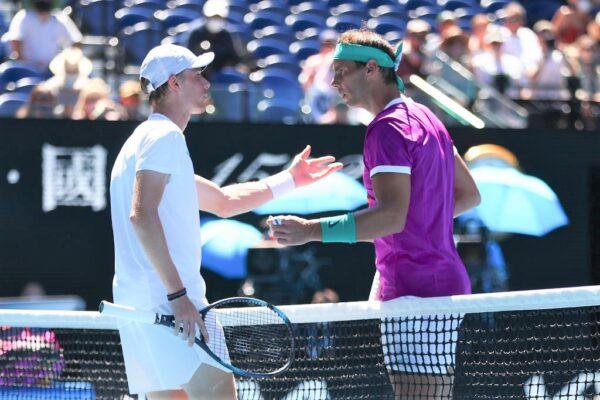
The final was an engrossing and enthralling event with incredible performances by Nadal and Medvedev. Following his historic win against a tenacious Medvedev, Nadal was feted and lauded.
Of course, Nadal’s critics will contend that it would have been different if Djokovic had been allowed to play, and that therefore, Nadal’s win is somehow tainted.
Regardless, Nadal has now achieved the status of an eternal legend because of his tennis exploits and his determination to always go the extra mile to win his matches. In that regard, he is a role model for the new generation of tennis players.
Overall, it was an accident-prone Australian Open, rich in intrigues, controversies, failures, stupendous achievements, and yet, it was a celebration of the indomitable human spirit.
